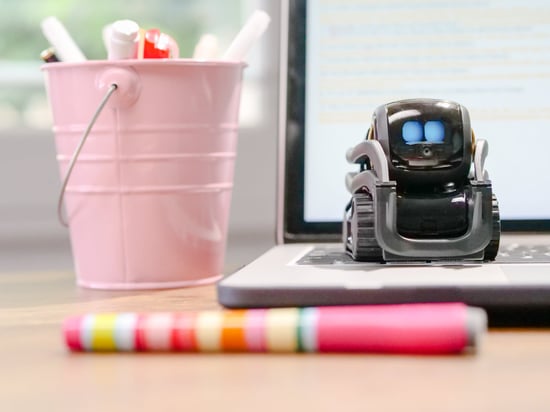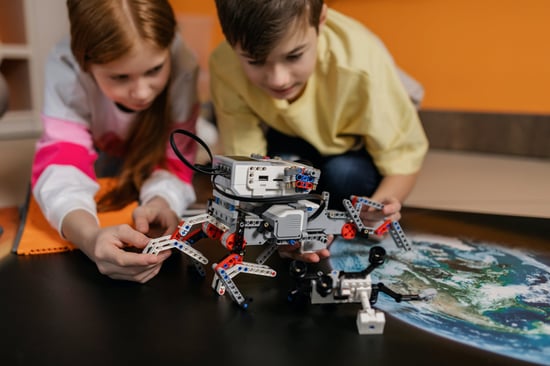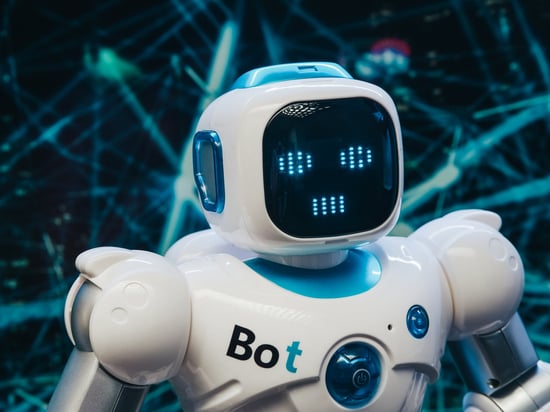Sebastian is a talented robotics developer. Despite his young age of 24, he has been working with IT for 9 years. Sebastian has been working with RPA for the past 2 years and has excelled to become an expert on Blue Prism.

Sebastian is currently working on multiple projects including a robotics proof of concept for the public sector. He is a native Dane, currently residing in Copenhagen and worked in Ireland for 3 years.
What It's Like to Be an RPA Developer
Q1. Hi Sebastian, great to talk to you today. First off, can you tell us why you decided on a Computer Science degree?
Great to talk to you too! Since I was 9 years old, I knew I wanted to work within IT. So through the ages of 9-18 I “took my degree” through the teaching from my dad and from self-learning, with a lot of trial & error. Therefore, when it came to pick a degree after graduating from the equivalent of college, I decided to go for the Computer Science degree as it was a given.
Q2. How much influence did your degree have on your current AI and robotics career path?
Not a lot actually. I had set my mind to become a Solutions Architect since I was 17 years old. I was actually a Java Developer / Systems Administrator, and did graphic designing & developed web solutions freelance, when I got the offer to learn about RPA and introduce the software into the innovation centre I was working at.
Q3. We see that you achieved successful telemarketing experience; what did you learn there that you have applied to your tech career?
It was a fun time, when I was doing my degree, I was a telemarketing agent, DJ and a bartender! I learned a lot about selling which is an important skill to have when you need to get a message across. No matter what job I am doing, I will always want to become one of the best and so far; I have succeeded. This also applies to my tech career. It’s a space with rapid growth and new technologies evolving all the time, so if I haven’t heard about it I will master it.

Building a Career in Robotics
Q4. You say that “If I haven't heard about it will master it”: how important do you think that mind-set is to succeeding in IT?
In my opinion, it is the key to my success, but not the deciding factor. You also need determination and be willing to take risks. If you aren’t willing to put everything you have on the line, you most likely won’t succeed. With this in mind I have acquired myself a skillset, that there are only a few areas within IT that I wouldn’t know something about. The final key point is to make yourself invaluable to the company your working for by obtaining knowledge no one else has or isn’t easily obtainable. This secures you not only better job security, but when it’s time to progress into another role, another company or you are simply looking for a raise, then knowledge provides you with more bargaining chips.
Q5. Which of the 12 robots that you have successfully delivered, are you most proud of, and why?
The robot I’ve been most proud of actually consists of 5-6 robots, which all work in tandem for one of the biggest Nordic banks, Danske Bank. It was a part of a huge project and the purpose was to innovate and digitalize how we buy houses and acquire mortgages in Denmark. The project is now called sunday.dk and the project still runs, but the RPA part of the journey has ended after the robots were delivered.
Q6. Tell us something about Blue Prism RPA that most people don’t know.
Well let’s start from the beginning. RPA is an acronym for Robotics Process Automation. The robots we speak of are not typical ‘mechanical’ robots, like in a car production line for example. These are more like automating human back office workers. With RPA you are able to make a robot which is able to mimic a human’s actions on a computer, so you need to see the “robot” as a co-worker that never sleeps, never takes breaks, takes no leave and works incredible efficiently. Blue Prism is the software and it’s very easy to learn, but incredibly difficult to master. Thus, any non-technical individual would be able to learn it.
Q7. Who has been your most influential mentor in tech, and why?
This would be my dad. He is currently working as a Senior IT Architect at Vestas, which is the largest wind turbine company in the world. He has worked within the IT space for 25 years and has been my inspiration and mentor since I was very young. When I was only a few years old he used to have me on his lap while he worked, so I showed interest in IT at a very young age. My dad noticed my interest and began teaching me, I still remember, at an age of 12, how excited I was when I showed my dad that I had finally set up my very first VDI environment without his help! It’s only within the last few years that the tables have turned and he sometimes need to ask me for help on something I would know more about than him!
Q8. There remains the provocative argument that ‘robots will replace humans’ in certain roles/tasks, what is your own view of this?
I don’t think robots will ever replace humans entirely. To see where this is going you need to look into the past, you consider the industrial revolution. This was the era where machines began to take over the manufacturing industry. Most of the workers transitioned into maintenance roles because you need someone to monitor the robots, the quality and be able to handle things manually if a robot breaks down. This will also happen once AI & robotics are more evolved and more adapted. I believe someone will still need to monitor this, monitor quality control and be able to stand in if the robot fails to complete its intended tasks. So robots will replace some typical human activity but not ultimately replace humans.
The Future of RPA and Robotics in Human Lives
Q9. Do you use robots, if so, what are they used for?
I don’t use RPA if that’s what you are thinking. Although, I have a smart home. My smart home includes an Alexa, which is connected to Sonos speakers, my Roomba hoover, which is amazing by the way, and the Phillips Hue lamps in every room. There are still a few items I need to buy and then I’m done with my smart home.

Q10. What are your views on encouraging more diversity in tech overall?
I fully encourage diversity, but I believe it will slowly come, as IT becomes more and more socially accepted. At least in Denmark they are encouraging young boys and girls to go into tech, as it’s obligatory to have development classes in the 3rd grade in some primary schools. I haven’t really met lack of diversity in my career, I’ve always been in teams with an almost 50/50 split gender-wise and I’ve always worked in international teams with people from all over the world. 4 years before I started on my IT college there were 9% women on my course, my first year it was 39% and the year after had 42% women. So from my perspective and experience, there is progress happening. However, we are far from done.
Advance Your Tech Career
Looking for a new opportunity? Here are 12 Challenging Tech Career Paths to Choose From.




